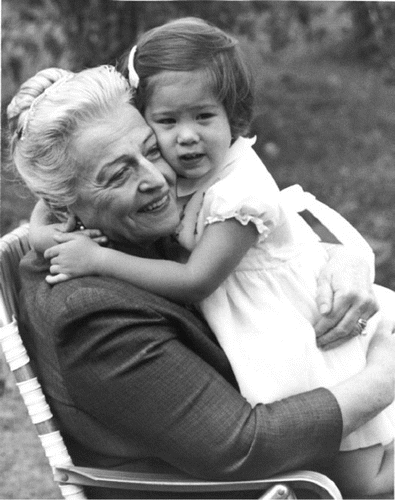Buck, Pearl Sydenstricker (1892-1973)
Missionary in China and Nobel Prize winner in literature
 Born in Hillsboro, West Virginia, Pearl Sydenstricker was raised in China by her parents, who were missionaries with the (Southern) Presbyterian Church in the U.S. She graduated from Randolph-Macon Woman’s College in Virginia and returned to China as an educational missionary, mainly in Nanking. In 1917 she married John Lossing Buck, an agricultural missionary from the Presbyterian Church, U.S.A., whom she later divorced. In 1932 she received the Pulitzer Prize for The Good Earth (1931), a novel that described the difficult life of a Chinese peasant couple. In that same year she published a controversial pamphlet, Is There a Case for Foreign Missions? and an article in Christian Century that praised the report of the Laymen’s Foreign Missions Inquiry.
Born in Hillsboro, West Virginia, Pearl Sydenstricker was raised in China by her parents, who were missionaries with the (Southern) Presbyterian Church in the U.S. She graduated from Randolph-Macon Woman’s College in Virginia and returned to China as an educational missionary, mainly in Nanking. In 1917 she married John Lossing Buck, an agricultural missionary from the Presbyterian Church, U.S.A., whom she later divorced. In 1932 she received the Pulitzer Prize for The Good Earth (1931), a novel that described the difficult life of a Chinese peasant couple. In that same year she published a controversial pamphlet, Is There a Case for Foreign Missions? and an article in Christian Century that praised the report of the Laymen’s Foreign Missions Inquiry.
Her emphasis on social service instead of evangelism and her criticism of missionary personnel in China sparked conservatives to demand her dismissal from the Presbyterian Board of Foreign Missions, leading her to her resignation in 1933. Fighting Angel and The Exile, both published in 1936, recount the lives of her missionary parents, Absalom and Carrie Sydenstricker. The biographies contributed significantly to the Nobel Prize in literature that Buck was awarded in 1938. Many of her novels about life in China include missionary characters.
This article is reprinted from Biographical Dictionary of Christian Missions, Macmillan Reference USA, copyright © 1998 Gerald H. Anderson, by permission of Macmillan Reference USA, New York, NY. All rights reserved.